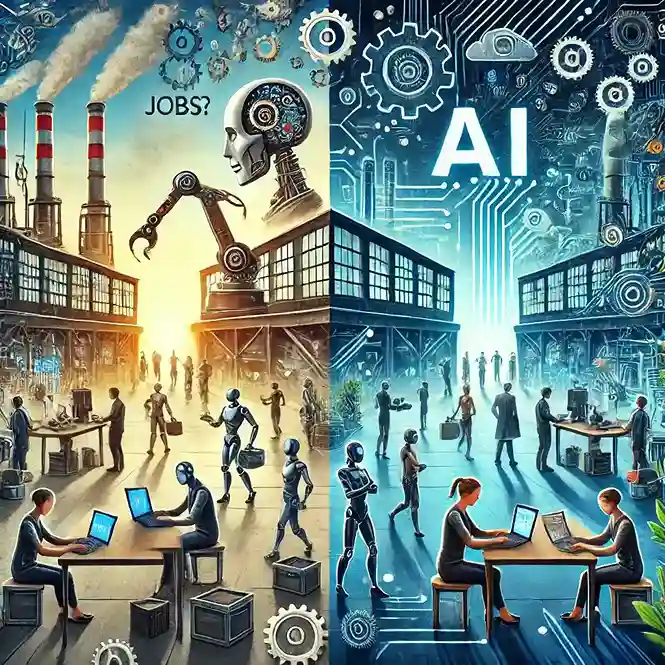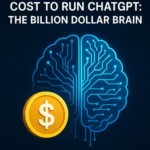Workers using generative AI save an average of 2.2 hours per 40-hour workweek (Federal Reserve Bank of St. Louis, 2025).
In just a few years, Artificial Intelligence has evolved from a buzzword into a force that’s fundamentally reshaping our daily lives. From writing code to composing music, and even helping diagnose diseases—AI, especially generative AI, is changing everything. But what does this mean for us, as professionals, creators, and even consumers of content?
Let’s explore some intriguing questions that people are asking—and the real answers behind them.
Continue reading ⤵

Can AI Think Creatively—Or Is It Just Mimicking Us?
This is one of the most debated questions of our time. While AI tools like ChatGPT or Midjourney can produce what appears to be creative work, the truth is a bit more nuanced.
AI doesn’t “think” creatively the way humans do. It analyzes massive datasets and predicts what a creative output should look like based on patterns. That means it’s excellent at remixing, combining, and simulating creativity—but it still lacks intuition, emotion, or genuine inspiration.
However, the result is often compelling enough to feel creative. Artists, writers, and designers are now blending AI into their workflows—using it as a brainstorming partner or tool to spark ideas they may not have otherwise explored.
Key takeaway:
AI might not replace human creativity, but it’s quickly becoming one of its most powerful collaborators.
Will AI Replace Jobs or Redefine Them?

According to a 2025 McKinsey report, 78% of organizations have integrated AI into their operations, with 71% using generative AI in at least one business function.
This is the elephant in the room. With AI writing blog posts, analyzing data, and even managing customer service chats, people wonder: Am I still relevant?
The short answer? Yes—but only if you adapt.
AI is automating repetitive, rule-based tasks. Jobs that involve pattern recognition, summarizing content, or performing calculations are increasingly AI-assisted. However, this doesn’t mean humans are out of the picture. In fact, it shifts our value from execution to supervision, creativity, strategy, and empathy.
New roles are emerging too—like AI trainers, prompt engineers, and ethics consultants. Even traditional professions like teaching and marketing are evolving, with AI becoming an assistant, not a replacement.
Key takeaway:
Rather than fearing AI, focus on developing the skills that machines can’t replicate—critical thinking, leadership, emotional intelligence, and ethical judgment.

Is It Ethical to Use AI to Write Articles, Emails, or Social Media Posts?
According to a 2025 report by Pearl Lemon, “60% of news articles globally are now AI-generated, and the number is expected to rise further.”
(Source: pearllemon.com)
Let’s be honest—most people have already tried it. But is it ethical to let a machine write what people assume came from you?
This depends on transparency and intent.
If AI is helping you brainstorm ideas or polish your grammar, that’s no different from using tools like Grammarly or Google Docs’ suggestions. But if you’re passing off an entirely AI-generated article as your original opinion or research, it may cross a line—especially in journalism, academia, or professional consulting.
Google has also clarified that AI content is not penalized—as long as it’s useful, original, and high-quality.
Key takeaway:
Use AI as a co-creator, not a ghostwriter. Maintain your voice and integrity, and disclose when automation plays a significant role.

Why Is Generative AI So Important for SEO in 2025?
According to a 2025 survey by seoClarity, “86.07% of respondents have integrated AI into their SEO strategies, with 83% of those from companies with over 200 employees reporting improved SEO performance.”
(Source: seoClarity Research – Impact of Generative AI)
Search engine optimization (SEO) has changed dramatically thanks to AI. Google’s algorithms are smarter than ever, capable of understanding context, sentiment, and user intent.
Generative AI tools now assist with:
- Creating optimized content around long-tail keywords.
- Personalizing content for different audience segments.
- Analyzing competitor pages to spot content gaps.
AI can suggest not only what to write, but how to structure it for maximum engagement. For example, if you’re writing about “freelance finance tips,” AI can recommend subtopics, internal links, and even title formats that increase click-through rates.
Key takeaway:
To stay competitive in search, blend AI-driven insights with human creativity and topic authority.
Will AI Ever Be Smarter Than Us?
Should We Be Worried?
This is where things get philosophical—and a little spooky. AI is already better than humans at specific tasks, like playing chess, detecting anomalies in medical scans, or translating languages instantly.
But general intelligence—the kind that can think, feel, and reason across multiple domains—is still far off. Some researchers predict that Artificial General Intelligence (AGI) could emerge within a few decades, while others are skeptical.
The real concern isn’t AI “taking over,” but how humans choose to use it. Bias in training data, lack of regulation, or unethical deployment can have serious consequences.
Key takeaway:
We don’t need to fear AI—but we do need to be smart about how we build and govern it.
What Should You Be Doing Right Now to Stay Ahead of the AI Curve?
Here are a few practical tips:
- Experiment with AI tools—start writing, editing, or analyzing with them.
- Upskill in areas like prompt engineering, data literacy, and digital ethics.
- Stay informed through podcasts, newsletters, and communities.
- Integrate AI into your workflow—whether you’re a marketer, educator, or entrepreneur.
The future isn’t about man vs. machine—it’s about man with machine. The more you treat AI as a teammate, the more powerful your results will be.
Final Thoughts
Generative AI isn’t just another tech trend—it’s a fundamental shift in how we create, communicate, and think. It raises important questions about identity, ethics, work, and intelligence itself.
But if we approach it with curiosity, responsibility, and adaptability, AI can help us do more than we ever imagined—without losing what makes us human.
📚 Sources
- seoClarity. (2025). Impact of Generative AI on SEO. https://www.seoclarity.net/research/impact-generative-ai
- Pearl Lemon. (2025). AI-Written Content Now Dominates News Articles. https://pearllemon.com/ai-written-content-dominates-news-articles
- McKinsey & Company. (2025). The State of AI in 2025. https://www.mckinsey.com/capabilities/quantumblack/our-insights/the-state-of-ai
- MarketsandMarkets. (2025). Generative AI Market Size and Forecast. https://www.marketsandmarkets.com/Market-Reports/generative-ai-market-142870584.html
- Federal Reserve Bank of St. Louis. (2025). Generative AI and Work Productivity. https://www.stlouisfed.org/on-the-economy/2025/feb/impact-generative-ai-work-productivity




























Leave a Reply